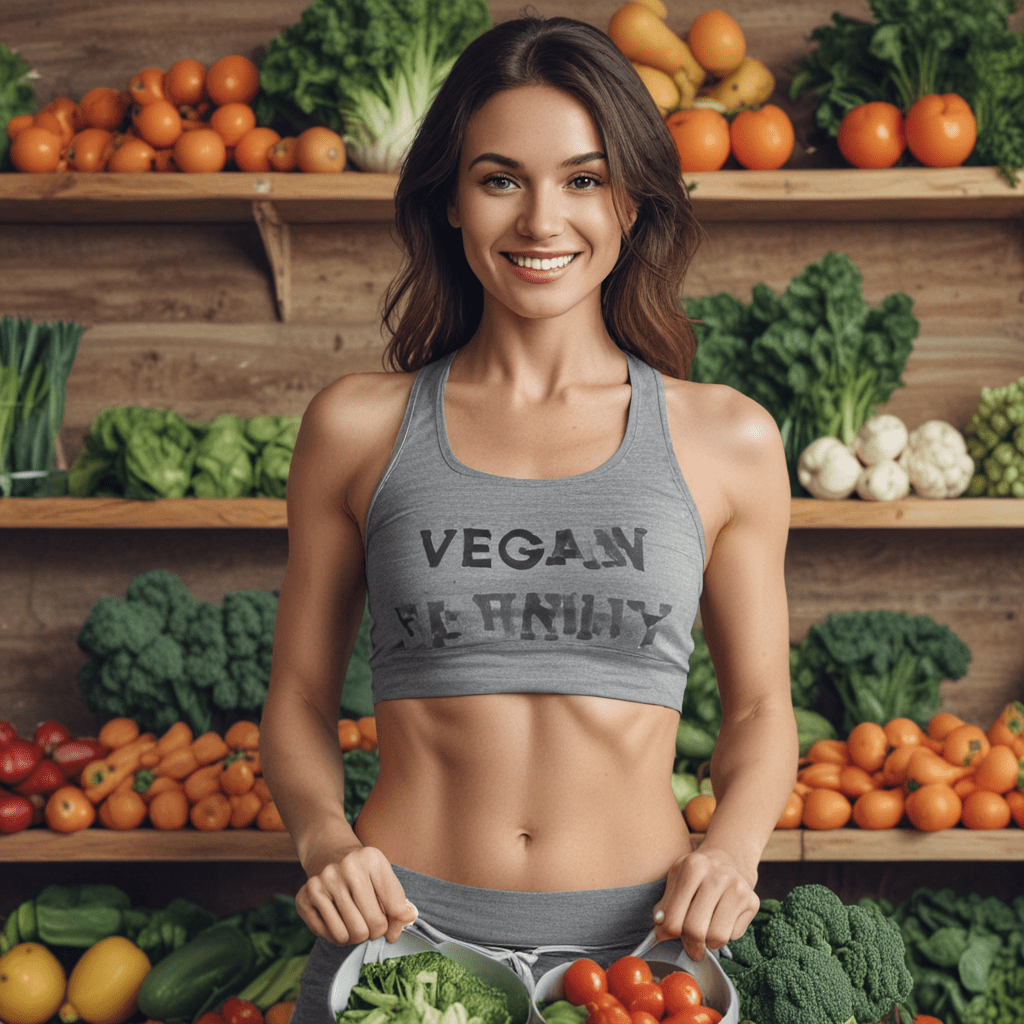
Introduction
Adopting a vegan diet does not need to compromise fertility goals. With mindful planning and nutritional awareness, a vegan lifestyle can support optimal reproductive health. This article explores the key nutrients essential for fertility and provides guidance on ensuring adequate intake through a vegan diet.
Nutrients Crucial to Fertility in a Vegan Diet
Fertility requires a range of nutrients, including protein, iron, calcium, vitamin B12, and essential fatty acids. A vegan diet can provide all of these nutrients, but attention to specific food sources and supplementation may be necessary to meet daily requirements. Understanding the role of each nutrient and strategies for optimizing intake through plant-based foods empowers individuals to make informed choices that support their reproductive health.
Protein Sources and Their Significance
Protein is essential for building and repairing tissues, including reproductive organs. Plant-based protein sources such as legumes, tofu, tempeh, nuts, and seeds provide the amino acids necessary for fertility. Ensuring a diverse range of protein sources throughout the day helps meet daily requirements and promotes hormonal balance.
Ensuring Adequate Iron Intake
Iron is crucial for red blood cell production and oxygen delivery to the reproductive organs. Plant-based sources of iron include fortified cereals, leafy green vegetables, dried fruits, and legumes. However, the iron in plant foods is less bioavailable than in animal products. Vitamin C enhances iron absorption, so incorporating citrus fruits or vegetables with high vitamin C content into meals is recommended.
Calcium and Bone Health in a Vegan Diet
Calcium is essential for bone health, which is crucial for supporting pregnancy and childbirth. Plant-based sources of calcium include fortified plant milks, leafy green vegetables, broccoli, and tofu. Calcium absorption is enhanced by vitamin D, so exposure to sunlight or supplementation is recommended.
Vitamin B12 and Its Importance for Fertility
Vitamin B12 is necessary for DNA synthesis, cell division, and fetal development. It is not naturally found in plant foods, so vegans must ensure adequate intake through fortified foods, such as plant-based milks and cereals, or supplements.
Essential Fatty Acids for Optimal Reproductive Function
Essential fatty acids, including omega-3 and omega-6 fatty acids, are crucial for hormone production, cell growth, and brain development. Vegan sources of omega-3 fatty acids include flaxseeds, chia seeds, and algae supplements. Omega-6 fatty acids are more readily available in plant-based foods, but a balanced intake is important for optimal fertility.
Other Key Nutrients to Consider
Other nutrients that play a role in fertility include iodine, zinc, and folate. Iodine is essential for thyroid function, which regulates metabolism and growth. Zinc supports sperm production and immune function. Folate is crucial for cell division and fetal development. Ensuring a varied vegan diet and considering supplementation for these nutrients can help meet daily requirements.
Addressing Concerns and Managing Nutrient Deficiencies
Concerns about nutrient deficiencies on a vegan diet can be addressed by working with a registered dietitian or healthcare professional. Blood tests can assess nutrient levels and identify any areas of deficiency. Supplementation may be recommended to ensure optimal intake of certain nutrients, such as vitamin B12, iron, and calcium. A balanced and well-planned vegan diet, supported by supplementation when necessary, can provide all the nutrients essential for fertility.
Conclusion: Optimizing Fertility with a Well-Planned Vegan Diet
A well-planned vegan diet can support reproductive health and fertility. By focusing on nutrient-dense foods, consuming a variety of protein sources, ensuring adequate iron intake, and supplementing key nutrients when necessary, vegans can create the optimal conditions for conception and successful pregnancy. Working with a qualified healthcare professional can provide personalized guidance and address any specific concerns, empowering individuals to make informed choices that support their fertility goals.
FAQ
- Can a vegan diet cause infertility?
No, a well-planned vegan diet does not compromise fertility. With attention to nutrient intake and supplementation when necessary, a vegan diet can provide all the nutrients required for reproductive health.
- What are the best sources of protein for vegans?
Legumes, tofu, tempeh, nuts, and seeds are all excellent plant-based sources of protein. Aiming for a variety of protein sources throughout the day helps ensure adequate amino acid intake.
- How can vegans ensure they get enough iron?
Consuming fortified cereals, leafy green vegetables, dried fruits, and legumes can provide iron. Pairing iron-rich foods with vitamin C-rich foods enhances absorption.
- Is it possible to get enough vitamin B12 on a vegan diet?
Vitamin B12 is not naturally found in plant foods, so vegans must supplement with fortified foods or supplements to meet daily requirements.
- Are there any other nutrients vegans need to be aware of?
Iodine, zinc, and folate are other nutrients important for fertility. A varied vegan diet, supported by supplementation when necessary, can help ensure adequate intake of these nutrients.


